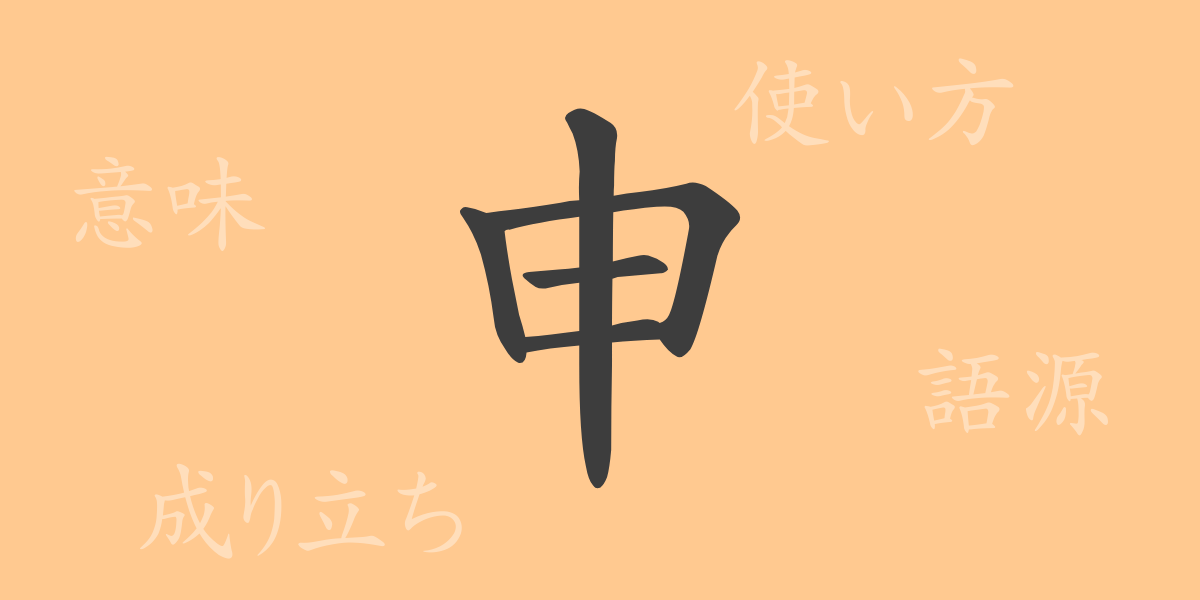The Kanji ‘申’ is deeply rooted in Japanese culture, carrying not just literal meanings but also significant historical and cultural narratives. In this article, we delve into the etymology, meanings, and uses of ‘申’, and explore phrases and idioms that incorporate this character, enriching our understanding of the depth of the Japanese language through the exploration of this single character.
Origins of 申 (もう(す))
The Kanji ‘申’ has ancient origins in Chinese oracle bone script, initially symbolizing thunder and later evolving to represent time intervals, specifically the hours from 3 to 5 p.m., known as ‘申時 (しんじ)’. Over time, ‘申’ also came to denote communication, used in expressions like ‘申す’ (to report or inform), embodying the Kanji as a symbol of communication.
Meaning and Usage of 申
‘申’ fundamentally means ‘to say’ or ‘to report’, often used in a humble or respectful context, such as in ‘申し上げる’ (to say respectfully). It also marks the ‘申年 (さるどし)’, one of the twelve zodiac signs, which recurs every twelve years.
Readings, Stroke Count, and Radical of 申
The Kanji ‘申’ is frequently used in Japanese, characterized by its simplicity and utility:
- Readings: On’yomi ‘シン’, Kun’yomi ‘もう(す)’, ‘さる’
- Stroke Count: 5 strokes
- Radical: The radical for ‘申’ is itself, classified under the ‘申’ radical.
Phrases, Idioms, and Proverbs Involving 申
Many phrases, idioms, and proverbs include ‘申’, each with unique meanings and applications:
- 申し訳ない(もうしわけない) – An expression of apology or regret.
- 申し込む(もうしこむ) – To apply for something or make a proposal.
- 申し分ない(もうしぶんない) – Perfect, without any complaints.
- 申年(さるどし) – The zodiac sign of the monkey, one of the twelve-year cycle signs.
- 申告(しんこく) – To declare or report, commonly used in the context of taxes.
These expressions are frequently used in both daily conversations and in business settings, playing a crucial role in Japanese communication.
Conclusion on 申
The Kanji ‘申’, while simple in form, encompasses a rich array of meanings and applications, from indicating time to expressing humility, and even marking zodiacal years. Understanding ‘申’ not only deepens our appreciation for the Japanese language but also underscores the importance of preserving and conveying the richness of Japanese words to future generations.

























